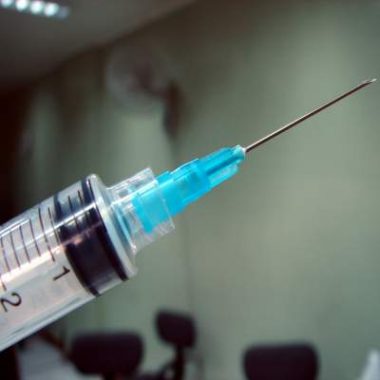New vaccines could face ‘stricter hurdles’ if Government recommendations go ahead

A Government consultation on vaccination cost-effectiveness could introduce ‘stricter hurdles’ and make it less likely for new vaccines to be approved.
The consultation, focused on how the cost-effectiveness for vaccinations is assessed, follows recommendations from a Government group which suggested lowering the threshold for new vaccines.
The ABPI has expressed ‘significant concern’ that the changes could impact negatively on the health of the nation if they are introduced.
The report, which recommended lowering the cost-effectiveness threshold from £20,000 to £15,000 per quality-adjusted life years, said that this would ‘imply a stricter hurdle for new vaccines to be found cost-effective compared to existing methodology.’
In their response to the report, the ABPI expressed significant concern that the recommendations would impact negatively on the health of the nation by making it harder for people to access vaccines on the NHS in the future.
ABPI value and access director Dr Paul Catchpole said: ‘The UK currently has a world-leading immunisation programme so it is profoundly concerning that proposals to introduce stricter hurdles for one of the most effective public health interventions available to us are even being considered.’
He added that it’s vital that this consultation fully considers the views of stakeholders before making a decision.
The initial report outlining the recommendations has been long awaited; finally being published nearly two years after it was presented to the Department of Health and Social Care.
It follows a campaign which saw over 800,000 people sign a petition after the DHSC rejected a vaccination against meningitis B, for not being cost effective.
The Government’s Appraisal Alignment Working Group, which provided analysis on the recommendation, said that reducing the cost-effectiveness price would ‘make it less likely for vaccines to be approved at current prices’.
Although they argued that this could ‘provide a possibility for funds to be reallocated to other, potentially more cost-effective interventions in the wider healthcare system’.
The consultation is asking for stakeholder opinions prior to any decisions being made on if and how to implement the recommendations. The deadline for responses is 21 May 2018.
Pulse October survey
Take our July 2025 survey to potentially win £1.000 worth of tokens

Visit Pulse Reference for details on 140 symptoms, including easily searchable symptoms and categories, offering you a free platform to check symptoms and receive potential diagnoses during consultations.










